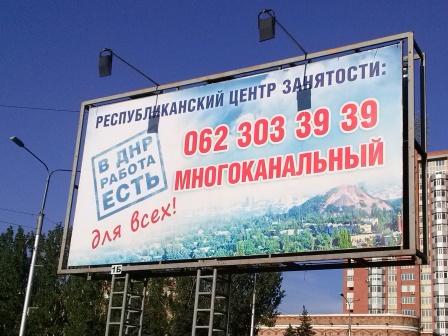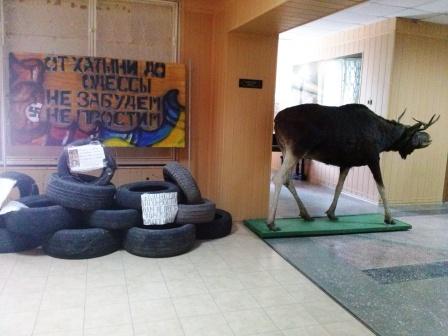I met Oleg in April 2014 in Donetsk, east Ukraine, just before the war started. I worried. I couldn’t imagine how such a fabulously, flamboyantly queer person could survive if the militants manning home-made checkpoints, beating and locking people in basements and handing out ‘Donetsk People’s Republic’ leaflets that read ‘We oppose the seizure of power by oligarchs, extremists, paedophiles and homosexuals!’ had their way in Donetsk (they did).
Oleg moved to Kyiv, where I bump into him pretty often. Sometimes his hair’s black, sometimes blond, sometimes green or purple. He’s always smiley and gorgeous and ambiguous. On Wednesday he got beaten up on his way home from a film screening before this weekend’s Kyiv Pride equality march.
The far-right groups who publicly encourage and lead such attacks also say they oppose the seizure of power by oligarchs, extremists, paedophiles and homosexuals. They claim to be fighting in east Ukraine against the Russian-backed ‘Donetsk People’s Republic’ (‘We oppose the seizure of power by oligarchs, extremists, paedophiles and homosexuals!’) and even complain that their one-sided violent fight against LGBTQ in the rest of Ukraine is forcibly taking them away from this battle.
For example, the far-right National Corps is an organisation of self-appointed guardians of national security and morality – a bit like those self-appointed militants on checkpoints in Donetsk beating up people and giving out leaflets, really. A statement last year from National Corps about Kyiv Pride reads: ‘National Corps won’t permit disdain of the traditions of Ukrainian society and the Ukrainian family, or violation of their moral principles, just as our members didn’t allow Putin to impose his will upon Ukraine and enslave us.’
I am still wondering why all the National Corps members, and the brave guys who attacked two women and gentle, gorgeous Oleg in Kyiv on Wednesday, have not joined the Ukrainian army to fight the Putin-backed war in the east, which is, after all, ongoing.
More than 13,000 people have died so far in the war in the east. Around 4000 Ukrainians a year die in car accidents, 3,700 of TB, 8000 in alcohol related incidents.
Nobody in Ukraine has died because Oleg exists and is queer. Nobody ever got physically harmed as a result of the fact that someone else in Ukraine, or in the world, is L, or B, or G, or T, or Q.
What about National Corps’ ‘traditions of Ukrainian society and the Ukrainian family’? According to the Ministry for Social Policy, 10 percent of Ukrainian (heterosexual; same-sex is illegal) marriages end in divorce in their first year. In 2001, long before ‘gay propaganda’ was a thing in Ukraine, 17 percent of families were single-parent. In 2017, 70,000 children were orphans or removed from their parents’ guardianship (state statistics). A 2014 study found that 16 percent of women have experienced domestic violence.
Here’s a small story about prejudice. A friend just posted it on Facebook.
Sveta lives right on the breadline. She’s a single mother with two daughters; she lost her soldier son in the east Ukraine war (practically every mother I’ve met of sons missing or killed in the east Ukraine war is a single mother). Sveta went to pay her overdue utility bills, after being threatened with having her gas and electricity cut off. When she got to the cash desk she realised that somehow she’d left her rucksack open. The envelope with a large amount of money she really can’t afford to spend on bills, was gone.
When she got home to her flat she found the envelope and bills – which had her address on – stuck in the doorframe. All the money, every last note, was inside.
I went outside the building entrance and I’m sitting on the bench, feeling a bit dizzy. And then my neighbour Aunty Nina jumps out at me from the bushes. Why, she says, don’t you close the entrance to the building!!! I just had to kick out a couple of thieves standing outside your flat! Two teenagers, she says, can’t even tell what sex they were, one with green hair, one with purple …. Drug addicts, probably, screeches Aunty Nina.
That’s what they’re like, it turns out, guardian angels))))
And I’d thought….) they’re white and fluffy, with wings

Kyiv, 2017










